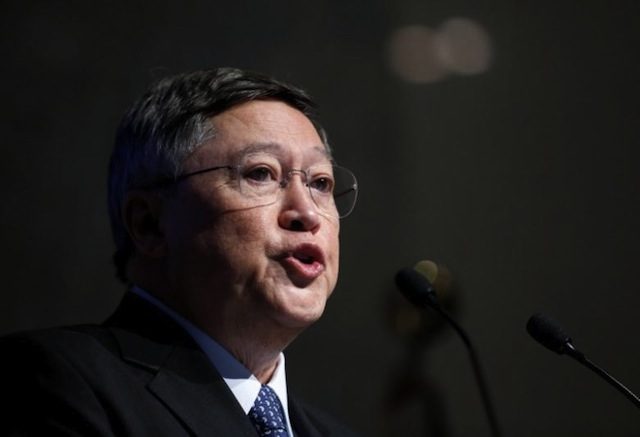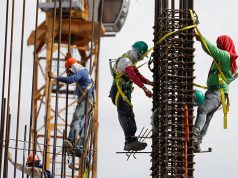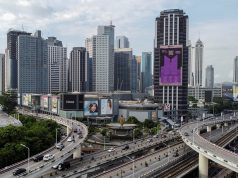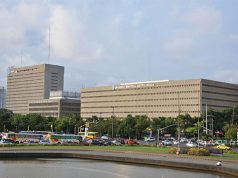MANILA – Deliberations at the Senate on the House-approved tax reform bill dubbed “TRAIN” are expected to be more intense given the opposition to planned tax hikes, but Finance Secretary Carlos Dominguez said the government is confident of making its case.
His expected timeline for Senate approval: four to six weeks from the start of resumption of lawmakers’ sessions in late July.
“But we’re expecting some debate, so probably another month or six weeks. This tax reform has already close to a hundred hours of of debate so I don’t know what else they want to beat up here,” Dominguez said in an interview.
“This is an important milestone signalling a strong possibility that this package may be enacted shortly after Congress resumes this July,” Dominguez said.
“Together wth the complementary measures it is expected to create significant fiscal space
amounting to P133.8 billion, 0.8% of GDP in 2018. These incremental revenues will be used only for enhancing infrastructure, housing, education, health and social protection,” added the DOF chief.
He allayed fears by those opposing the Tax Reform for Acceleration and Inclusion (TRAIN) package that the tax breaks embodied in the bill will be negated by the impact of some provisions on ordinary workers and vulnerable sectors.
“Definitely, we’ll be providing safety nets to to transition people and to avoid shocks. For instance, we’ll ask DTI to strengthen their price watch monitoring; we will provide some assistance to people just in case transportation costs go up; we will be providing assistance to transportation providers so that it will mitigate the increase in prices.”
He was referring to apprehension that higher tax on fuel as provided in the House version will be passed on to consumers.
Fuel, automobile and beverage prices
are expected to rise once proposed tax reforms take effect.
The Development Budget Coordinating Committee (DBCC), however. says the impact will be minimal, and it has kept the inflation target to 2 to 4 percent for this year up to 2022.
Macro assumptions kept
The economic managers, confident that the country’s growth will stay strong, had retained most macroeconomic assumptions following a meeting last week.
The likelihood of lower revenues from a watered-down tax reform bill, however,
prompted DBCC to trim the proposed budget for next year.
According to Budget Secretary Benjamin Diokno, “the DBCC forecasts sustained economic growth as macroeconomic fundamentals and imports remain stable. There are no changes on the bigger macroeconomic assumptions like GDP. No change on the inflation rate.”
Diokno said GDP growth will be 6.5 to 7.5% this year and then 7-8 for the rest of President Duterte’s term until 2022.
With the global economy improving, export growth projections for 2017, 2018 and 2019 were raised to 5, 7 and 9 percent, respectively from 2, 5, and 7 percent.
Earlier on Friday, the Philippine Statistics Authority reported that total trade grew to $11.7 billion in April, with a 12.1 percent growth in exports offsetting a 0.1 decline in imports…
Socioeconomic Planning Secretary and NEDA chief Ernesto Pernia said “this feeds into our optimism regarding the performance of the economy this year at least, and perhaps the subsequent years as well. In other words we’re seeing some sustainability of our forecasts regarding the economy.”
While the economic managers see the fiscal program on track, the House’s watering down
the Finance department’s tax reform proposals prompted DBCC to trim the proposed budget for 2018 to P3.767 trillion from P3.84 trillion.
Revenues for next year will be P2.84 trillion, disbursements will be P3.364 trillion, for a budget deficit of P523.6 trillion or 3% of GDP, Diokno said.
With revenues seen lower as a result of the watering down of the DOF proposals, “we have to adjust our expenditures because of our decision to keep to our deficit target,” Diokno said.










